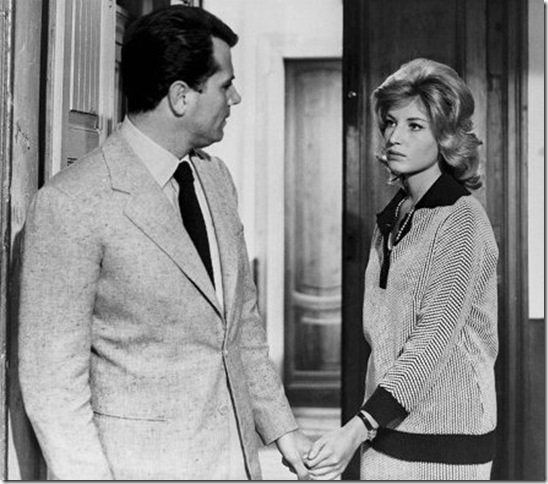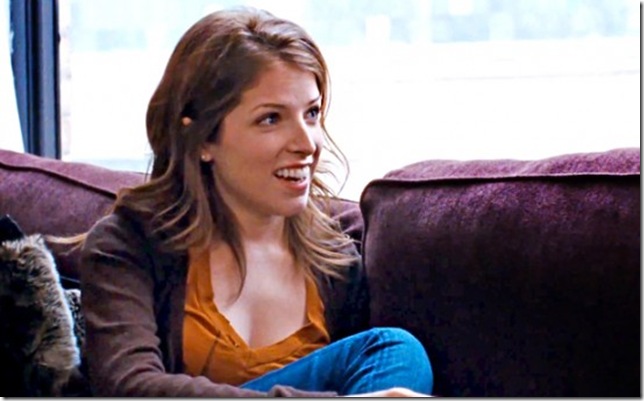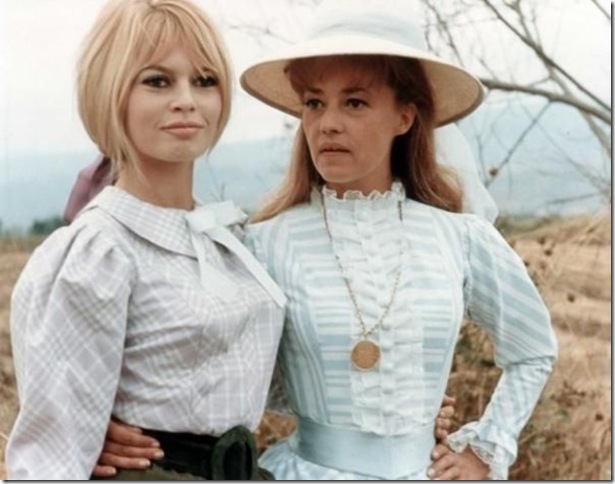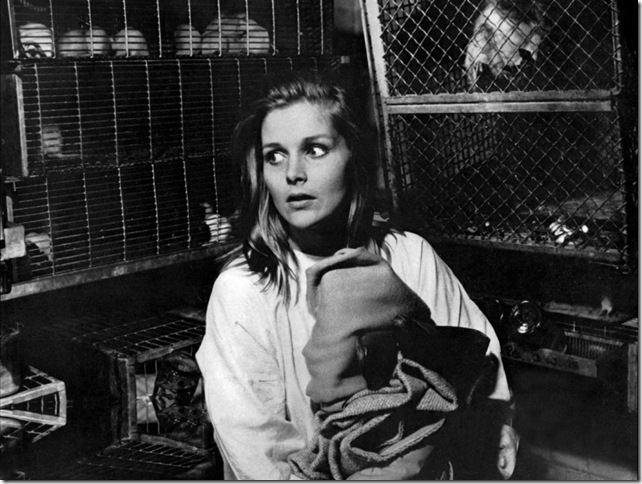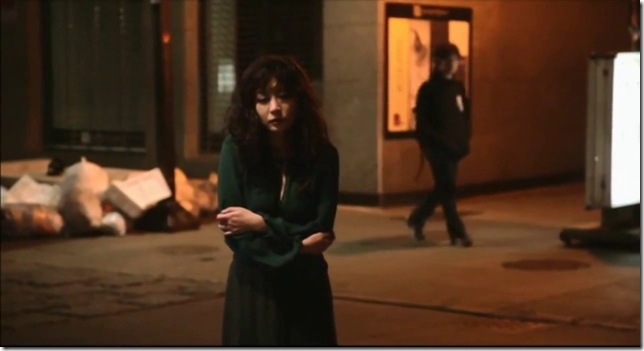L’Avventura: It is one of filmdom’s great synchronicities that Michelangelo Antonioni unveiled L’Avventura (Criterion, $27.59 Blu-ray, $26.96 DVD) the same year Alfred Hitchcock unleashed Psycho. These films, released in 1960, challenged cinematic conventions in similar ways by dispatching their ostensible protagonists within the first third of the movie, causing narrative disruptions that were then unheard-of. The difference, of course, is that in the Hitchcock film, Janet Leigh’s fate was sealed in 50 edits and a liberal dose of Bosco chocolate syrup; in L’Avventura, Lea Massari’s Anna vanishes on holiday in the Aeolian Islands 30 minutes into the movie, and her disappearance remains unsolved when the final credits roll.
L’Avventura’s reputation has ebbed and flowed in its more than 50 years of art-house percolation, and seeing it again, on a mostly gorgeous Criterion transfer, it’s easy to understand both reactions to this polarizing, unhurried study of bourgeois decay. It’s the movie that established a new noun, per Andrew Sarris: Antoniennui, that distinctive sense of languor, disaffection and pretention that gnaws at the heart of so many of the director’s works. I had forgotten, after a decade or more since my last viewing, that the film’s justifiably iconic scenes on the island finish just an hour into the movie, leaving another 87 minutes to go. I admit to checking my watch.
Its best stuff remains awesome, in the most literal sense of the word. As Anna’s lover Sandro (Gabriele Ferzetti), a jaded architect, and Anna’s friend Claudia (Monica Vitti) search for her on the volcanic archipelago, the harsh and breathtaking landscape becomes the movie’s main character, figuratively swallowing up everyone, and everything, else. The camera wanders, pitiless and omniscient, as it surveys enormous rock formations, dangerous chasms and torrential clouds, the characters meandering around it all like so many ants on a hill that could be toppled at any time by a child’s shoe. Anna was unhappy, and she could certainly have killed herself, but the way the scene is visualized, the more logical solution is the more existential one: She slipped into a vortex to another dimension.
As attempts to find the missing woman peter to a close — some 40,000 people vanish in Italy every year, one character points out — nothing changes. Nothing much happens, really, for the rest of the picture. High society continues without her, as Sandro begins an affair with Claudia, and other characters similarly drift from their romantic unions, desperately groping for love and affection in a world of antiseptic luxury.
L’Avventura can grow tiresome. I would submit that this radical movie isn’t radical enough, especially compared to the more formally groundbreaking work Antonioni would explore later, in L’Eclisse, Zabriskie Point and The Passenger. But if the film’s aggravating nothingness is its chief criticism, it’s also the movie’s inherent critique, its raison d’être. We’re meant to observe the callousness with which Anna is forgotten, tsk-tsking the morally vacant aristocracy that is all too quick to resume its natural order. It’s an ugly, cynical and most likely truthful message, and it’s not supposed to go down easy.
One Day Pina Asked … : Art-house directors have loved to capture the work of pioneering choreographer Pina Bausch on film, because she speaks their language of ambiguity, of subtlety, of emotional distance. The most famous of these mergers of the auteur’s camera and Bausch’s dance is Wim Wenders’ 2011 Pina, a landmark film in the artistic evolution of 3D photography. Pedro Almodóvar and Federico Fellini were so inspired by Bausch’s work that they each cast her in a film: And the Ship Sails On and Talk to Her, respectively.
There’s also this rarely seen 1983 TV documentary by Chantal Akerman, graciously retrieved from oblivion by Icarus Films ($22.48). Akerman pursued this project while on hiatus from feature filmmaking, and it suits her searching, experimental aesthetic perfectly. Biographical details about Bausch and her signature style are limited to the movie’s opening shot; the rest is, as Akerman says in her scant narration, a “journey through her unwavering quest for love.”
Akerman interviews some of Bausch’s dancers about this, but mostly One Day Pina Asked… is a study of the dancers themselves, both in rehearsal and in front of an audience, performing seminal works such as Carnations, 1980 and Walzer. Sometimes the choreography is inscrutable and esoteric; other times it oozes desperation and longing, as Bausch’s dancers grasp for intimacy while simultaneously pulling away from it — engaging in unorthodox ballets of attraction and repulsion. Like skipping records, they hypnotically repeat fruitless movements and take on the limpness and malleability of marionettes when necessary. Much of it barely qualifies as dance in any traditional sense; they’re more like four-dimensional art installations that deconstruct dance as much as they construct their own, new genre.
Akerman captures of all this without commentary, allowing us to draw what we want from the enigmatic works. She also films the dancers backstage, and even here, their movements feel deliberately calibrated and ritualistic; they’re like Method actors who don’t break character even in their trailers. Life and art become indistinguishable, a testament to the love shared between the choreographer, the dancers, the audience — and probably the filmmaker, too. This picture is beautiful, and at a television-dictated 57 minutes, far too short.
Happy Christmas: Put a very funny baby in front of a camera, and you’ve got yourself a very funny movie. YouTube has proven this, countless times over, on a micro level, but this self-evident axiom applies to features, too. Jude Swanberg is a very funny baby, and I’ll be damned if he doesn’t pilfer every scene from the professional actors he works with in Happy Christmas (Paramount, $14.99), written and directed by his father, the indefatigable low-budget auteur Joe Swanberg.
Joe also stars in the movie as a happily married father and filmmaker, and the moments he shares with his baby boy — washing him in the bathtub, playing with his food and then seeing Jude mimic his actions — are lovable without being twee. Nothing in these scenes will shake the Earth’s axis, but they’re so infectious because they’re so real, exemplifying a movie that is all about discovering truth and wisdom in the everyday.
Like much of Swanberg’s work, Happy Christmas is scrappy, charming and refreshingly liberated from traditional considerations of story structure. But if there’s very little plot, there are clearly defined characters: Jeff (Swanberg), a movie director; his wife Kelly (Melanie Lynskey), a blocked novelist and stay-at-home mom; and his sister Jenny (Anna Kendrick), a brazenly irresponsible problem child who, at 27, still acts like a college freshman. We’re nearing the holiday season, and she’s just arrived at her brother’s home to decompress after a breakup.
Jenny’s presence disrupts her brother’s family unit, but it also proves inspiring, on at least one unforeseen level, as this gentle but probing narrative wends an unpredictable path toward forgiveness and redemption. Moreover, this is a film that addresses issues that are commonplace in real life yet rarely expressed in movies, like the sacrificial give-and-take of marriage, the clash between expectations and reality, the perennial problem of a work-life balance. Happy Christmas is a brief but insightful gem about modern life, and one assumes it would be so even without that 2-year-old scene-stealer.
Viva Maria!: This 1965 comedy (Kino Lorber, $18.99 Blu-ray, $11.99 DVD) is one of a few commercial apices of Louis Malle’s career, a slow-building satire whose brilliantly anarchic second half more than makes up for the mothballed bawdiness of the first. Brigitte Bardot plays one of the movie’s two Marias, the fugitive daughter of an international terrorist. Fleeing the authorities, she rides the rails and winds up in a circus caravan, dressed like a soot-faced Dickensian waif. She takes up with the second Maria (Jeanne Moreau), a cabaret performer whose partner has conveniently just taken her own life after being rejected by a lover.
The two Marias become a song-and-dance team turned burlesque duo, and this is the portion of Viva Maria! that feels the most tired — another Bardot sex farce, the threat of her loins prompting the circus’ orchestra to cease playing their instruments and crew members to miss their cues. It gets better, and stays that way, when the Marias stumble into a revolution, nearly save the life of its leader, and proceed to take up his cause by deposing tinpot dictators, hypocritical church leaders and exploitative industrialists.
The humor evokes Mel Brooks, Luis Buñuel (whose son Juan-Luis served here as assistant director) and Dr. Strangelove: Government troops spill out of a train called “The Peace Maker,” guns blazing; the church’s medieval torture devices fall apart from decades of disuse; and the circus’ magician equips his doves with bombs aimed at the oppressors. And wait till you get to the joke about the beheaded deacon. The Marias’ lives never feel threatened, but Malle never strives for the dramatic heights of his art-house dramas. This is crowd-pleasing feminism and politically charged fun of the highest order.
Bunny Lake Is Missing: Otto Preminger directed this she’s-crazy-or-is-she thriller from 1965, available in a beautiful new Blu-ray from boutique distributor Twilight Time ($34.95, limited to 3,000 copies). At the end of the first school day in London, New York native and single mother Ann Lake (Carol Lynley) panics when her 4-year-old daughter Bunny goes missing. The problem is, no one has seen the little girl — including us — and soon enough, details emerge that put Bunny’s very existence into question, with Ann’s unusually close brother Steve (Keir Dullea) coming to her knee-jerk defense against an increasingly skeptical police superintendent (a droll Laurence Olivier).
The film, based on a novel by Merriam Modell, has benefited from a judicious reappraisal since being dismissed by both its director and critics in its initial release. The source material remains the weak aspect of Bunny Lake Is Missing, particularly its third-act twist, whose utter senselessness negates its suspense. But thanks to Preminger, the movie’s fringe benefits are copious, starting with the supporting players: a rogues’ gallery that includes Martita Hunt as a sort of madwoman in the schoolhouse attic, fastidiously chronicling children’s nightmares for psychological evaluations; and especially Noel Coward (!) as Ann’s lascivious, De Sade-worshipping, Chihuahua-cuddling landlord.
You’ll also feast on the cinematography, in CinemaScope and black-and-white, as it dresses up a B picture in A visuals. And pay special care to Preminger’s sound design, an offbeat symphony of aural textures: clanging cymbals to accompany a shock-cut, intrusive cuckoo clocks, machinery heaving in the bowels of a sanatorium, the squeak of a rusty spring on an ancient swing set, and even the British band the Zombies, whose live television performance supersedes a news report about Ann’s child.
Moebius: Hell hath no fury, etc. After witnessing her husband having an affair with another woman, a housewife tries to castrate him with a cleaver hidden in a bust of the Buddha. Thwarted, she darts off into their son’s room, and removes his organ instead. Then she devours it.
If you’re still managing to read this review, think about watching 80 minutes more of this. A film so imaginatively ghastly it could only have been produced in Asia, Moebius (RAM Releasing, $17.97 Blu-ray, $13.44 DVD) is the latest incendiary stomach-churner from South Korean shockteur Kim Ki-Duk. And like many of his films, it’s minimalist in character dynamics and maximalist in emotion, a visceral document of the unspeakable suffering — the unceasingly hideous domino effect —of that one horrifying action.
The wife leaves the family after what she’s done, and, out of guilt and/or solidarity, the husband/father has his own penis removed surgically. They discover ways to reach orgasm without their genitalia, by rubbing stones into their skin until they bleed, or stabbing themselves until the pain succumbs to pleasure. Then Mom comes home, and things go from bad to worse to doomed, in directions more humiliating to the actors than anything in the Lars von Trier canon.
For much of his career, Kim has been paring cinema down to its essentials by shedding unnecessary dialogue and exposition (a good example of this is his most well-known film, the atypically lovely Spring, Summer, Fall, Winter … and Spring), and Moebius is his apotheosis: There is no dialogue. But what feels refreshingly stimulating at first — this is a movie restored to the form’s original function as a purely visual medium, with its echoes of Carl Dreyer and the pained close-up — soon begins to feel like a stunt, the silence frustrating when a few words could help clear everything up. Of course, Kim doesn’t want anything cleared up.
In its disturbing way, the film manages to address themes of fidelity and promiscuity, betrayal and trust, shame and regret, and the sometimes-perverse mystery of attraction. But it may be just too off-putting for anyone but his die-hards to soldier through. Kim is a brave and radical filmmaker, and he would be more widely respected if his subject matter weren’t so abrasively alienating. His movies are beginning to seem like proverbial trees falling in remote woods, making horrifying sounds even when no one hears them.
